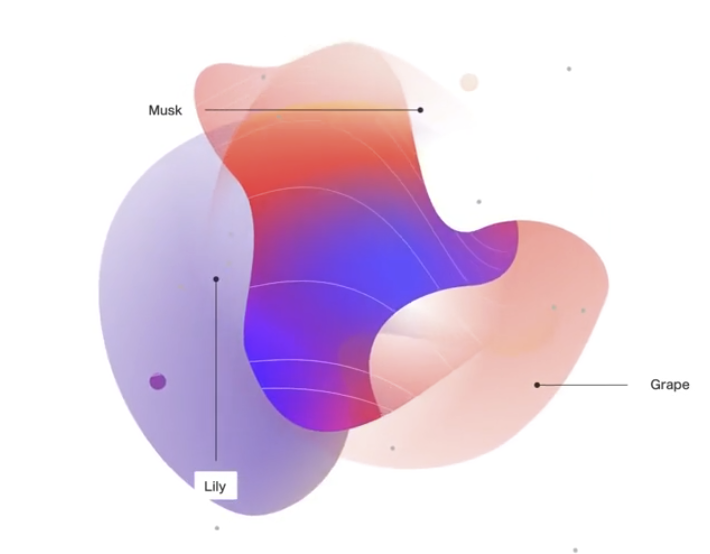The Scent of Success: How A.I. is Revolutionizing the Fragrance Industry
AI is revolutionizing the perfume industry by developing machine-learning models that can describe how chemicals might smell, streamlining the process of replicating scents and potentially digitizing odors.

Smell, the most intricate and subjective of senses, has proven to be a challenge for artificial intelligence (AI) to conquer. Unlike visual or auditory senses, smell is difficult to objectively measure and categorize. The human olfactory system possesses a remarkable sensitivity to countless odor molecules, each with its own unique characteristics and interactions.
Developing AI algorithms that can accurately perceive and analyze such complexity has proven to be no small feat. Additionally, smell perception is highly subjective and can vary greatly among individuals. What one person finds pleasant, another may find repulsive.
Perfumes, specifically formulated to evoke specific emotions or reactions, create an additional layer of subjectivity and variation that AI algorithms struggle to replicate.
The lack of comprehensive and standardized datasets in the field of perfumery hinders AI's ability to effectively comprehend and replicate smell. Unlike domains such as image recognition or natural language processing, structured data related to smell and perfume is limited, making it challenging for AI systems to train and learn.
The complex nature of perfume creation, blending scientific knowledge, artistic skill, and intuition, poses another hurdle for AI. Perfumers rely on their expertise, experience, and creativity to develop unique scent compositions, a creative aspect that proves difficult for AI algorithms to replicate.
Lastly, the emotional and experiential factors tied to smell and perfumes are significant barriers to AI. Smell and fragrance appreciation are deeply connected to our personal backgrounds, cultural influences, and individual associations. AI algorithms lacked human experiences and emotions, making it challenging for them to capture the subjective and emotional aspects of smell perception accurately.
Yet despite these challenges, researchers are actively exploring the use of AI, machine learning, and data analysis techniques to gain insights into smell perception, and fragrance preferences, and even aid in the creation of new perfumes.
A research team from the Monell Chemical Senses Center and start-up Osmo, co-led by Dr. Joel Mainland, has developed a machine-learning model that can describe how chemicals might smell. The model was trained using an industry dataset of 5,000 known odorants and was able to predict the odor words that best describe the smell of a molecule based on its shape. The researchers conducted a blind validation procedure, in which a panel of trained participants described new molecules, and compared their descriptions with those of the model. The model achieved better predictions than individual panelists for 53% of the molecules tested. The researchers hope that this model will advance the understanding of how the brain and nose work together and contribute to the digitization of odors.

The global fragrance industry, valued at $30 billion, relies on raw ingredients that are becoming increasingly difficult to source. Climate change-related extreme weather events have led to a dwindling supply of flowers popular in perfumery. Additionally, overharvesting and geopolitical turmoil have threatened the supply chains of other key ingredients. Osmo aims to address these challenges by creating safe, sustainable, and renewable aroma molecules that do not require the harvesting of plants and animals from the ecosystem.
The current process of replicating natural aromas is largely manual and time-consuming. Chemists at fragrance companies have been able to replicate some natural scents, but many scents still lack synthetic substitutes. An AI-driven approach streamlines this process by predicting and categorizing the scents of molecules based on their structure. This rational design business model allows creators to create specific odor molecules for fragrance and flavor companies, similar to how drugs are designed in the pharmaceutical industry.

This innovation extends beyond just replicating existing scents. A.I. developers aim to give computers a sense of smell, digitizing scent. This concept, while still in the early stages and facing technical challenges, has the potential to revolutionize the perfume industry. Digitizing odors would allow for the recording and reproduction of scents, opening up new possibilities for creating unique fragrances and flavors.
The development of an AI-driven approach is a significant step forward in the perfume industry. It addresses the challenges of sourcing raw ingredients, streamlines the process of replicating scents, and has the potential to revolutionize fragrance creation.
Collaboration between perfume artists, A.I. scientists, and luxury brands has the potential to create a more sustainable and diverse perfume industry, making it an important and impactful innovation for the industry.
kultur aims at facilitating such collaborations by bridging cultural gaps, protecting intellectual property assets, and enhancing the value of new assets born from this collaboration.
